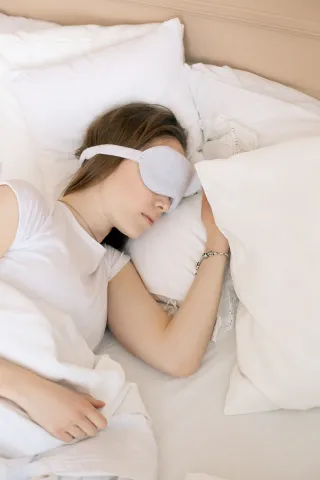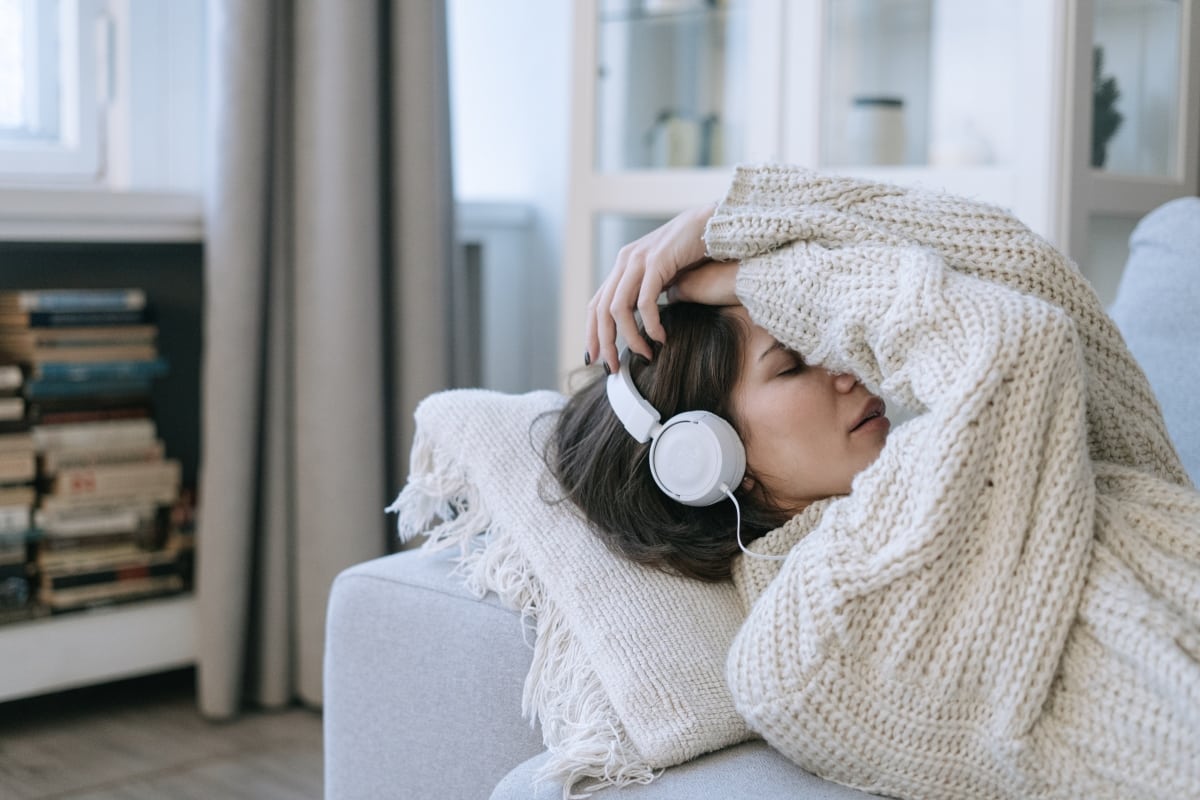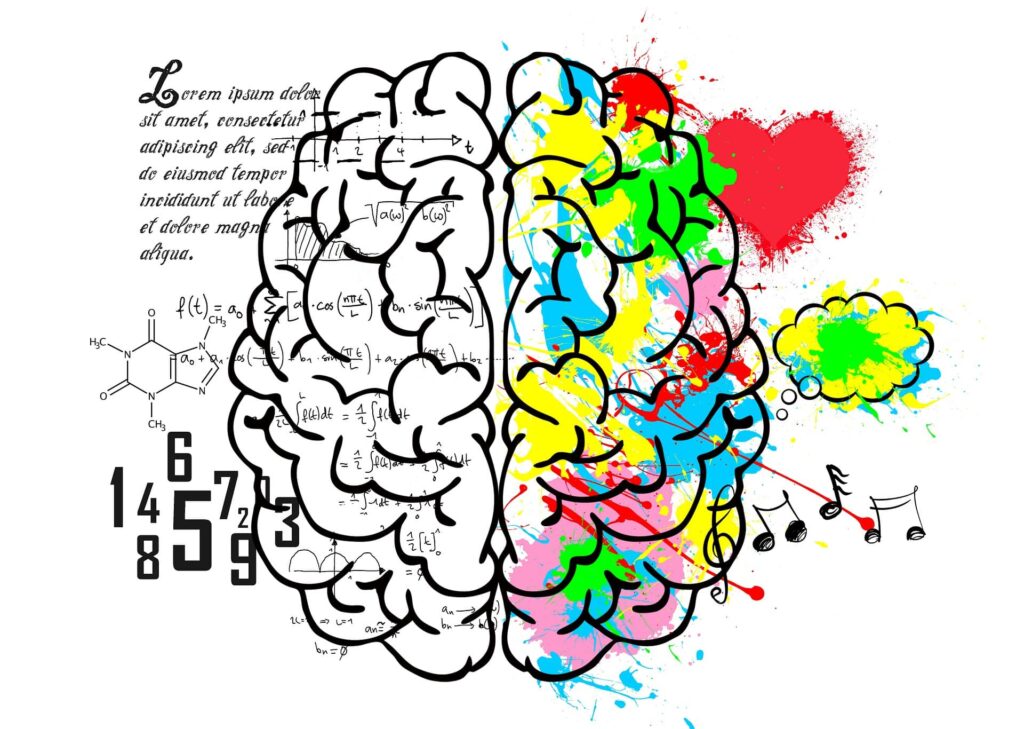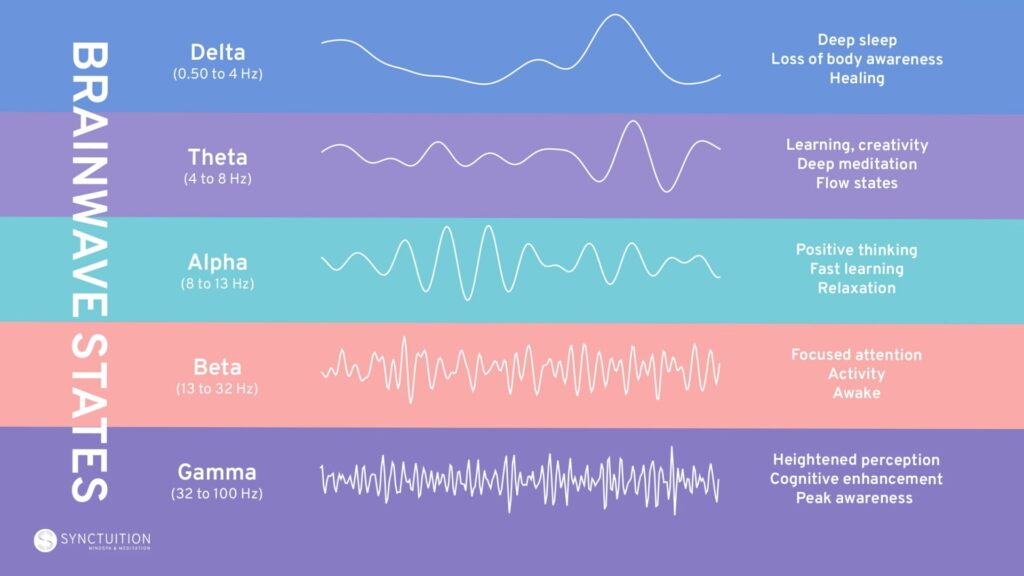Sleep Music for Fall Asleep
Do you have trouble falling asleep at night? Check out this list of the best sleep music to help you drift into a peaceful slumber.
From natural sounds to classical melodies, these tracks will soothe your mind and let you relax into a restful night’s sleep.
Main Benefits of Listening Sleep Music
Helping you fall asleep quicker
Sleep music can help you fall asleep faster by creating a consistent and relaxing bedtime routine.
Reducing nighttime awakenings
The steady and soothing sounds create a stable auditory environment that helps maintain a deep and uninterrupted sleep throughout the night.
Sleep music can enhance your mood by promoting emotional well-being and reducing negative emotions.
Lowering anxiety and tension
The gentle melodies and rhythms encourage a sense of peace, making it easier to let go of daily worries and unwind before bed.
Enhancing restful sleep
The soothing sounds help to slow down your breathing and heart rate, making it easier to fall asleep and stay asleep.




Explore Valuable Articles On Sleep Music
Dive into insightful articles on sleep music to learn how it can improve your sleep quality, reduce stress, and enhance your overall well-being.
Deep Sleep Music for Insomnia
Soothing Sleep Music for Kids, Comfortable Sleep
Deep Sleep Hypnosis Music for Stress Relief
Deep Sleep Music to Change your Brain for the Best
Baby lullaby lyrics and songs to calm your baby to sleep
Sleep Music Soothing Relaxation with Piano
Deep Sleep with Binaural Beats For Better Relaxation
Relaxing Music for Deep Sleep: A Way Forward for Productive Morning
Sleeping music with rain sound for a better sleep
Calming Music for Sleeping
More About Sleep Music
Sleep music is specifically designed to create a calming and peaceful environment that promotes restful sleep.
It often includes soothing melodies, gentle rhythms, and ambient sounds that help to relax the mind and body. By incorporating sleep music into your nightly routine, you can improve sleep quality, reduce stress, and wake up feeling more refreshed and rejuvenated.
Sleep Music And Why Should You Listen To It
Sleep music is a type of music that is specifically designed to promote relaxation and help you fall asleep. There are many different styles of sleep music, but they all share certain characteristics that make them ideal for falling asleep.
The tempo of sleep music is usually slow and relaxing, and the melodies often have a dreamlike quality.
In addition, sleep music relaxation often contains natural sounds such as rain and ocean sounds or other gentle background noise, which can help to drown out intrusive thoughts and external distractions. Listening to sleep music before bed can help you to relax and drift off to sleep more easily.
And because it doesn’t contain any lyrics, you can listen to it without worrying about waking up in the middle of the night with a song stuck in your head!
How Does Sleep Music Relaxation Work?
There is no one answer to this question as the effects of sleep music will vary from person to person. However, there are some theories about how sleep music may work to improve sleep quality.
One theory is that sleep music can help to slow down the brain waves, which then leads to deeper and more restful sleep. Another theory is that sleep music can help to mask any external noise that may be disruptive to sleep.
Whatever the mechanism, there is no doubt that many people find sleep music relaxation to be helpful in promoting a good night’s sleep. Many people find it difficult to get to sleep at night. They may toss and turn for hours, struggling to quiet their mind and relax their body.
The tempo is low and steady, and the melodies are often repetitive and lulling. The most popular type of sleep music relaxation is calming and slows down your heart rate and breathing. As your body relaxes, you start to feel drowsy and eventually drift off to sleep.
Know About The Benefits Of Sleep Music
Studies have shown that sleep music can be particularly helpful for people with insomnia. The relaxing effects of the music can help to quiet racing thoughts and ease tension in the body, making it easier to drift off to sleep. Sleep music can also help to reduce stress levels and anxiety.
In addition, sleep music can be used as a form of white noise. White noise is a sound that masks other sounds, making it easier to block out disruptive noises like traffic or snoring. As a result, sleep music relaxation can provide both immediate and long-term benefits for people who struggle to get a good night’s rest.
The Best Sleep Music Tracks On YouTube For Relaxation And Stress Relief
The best sleep music tracks are usually slow and calming, with a steady rhythm that can help to lull the mind into a state of relaxation. They may also include soothing sounds such as raindrops or waves crashing on the shore, which can further help to reduce stress levels and promote sleep. With so many different options available, it can be tricky to know where to start.
If you’re looking for some musical assistance in hitting the hay, consider streaming a playlist of sleepy songs on YouTube. There’s a wide variety of genres and artists to choose from, so you’re sure to find something that suits your taste.
One popular choice is “Weightless” by British band Marconi Union. The song was specifically designed to be relaxing, and studies have shown that it can help lower heart rate and blood pressure. Other good options include “Dream a Little Dream of Me” by The Mamas & the Papas and “JS Bach: Air on the G String.” Whatever you choose, make sure it’s something that you find calming and soothing.the
How To Create Your Own Sleep Music Playlist?
There’s something about rain falling gently against a window that can be incredibly lulling. Add in some soft, calming music, and you have the perfect recipe for a good night’s sleep. But what exactly is the best type of music to listen to when you’re trying to drift off? While everyone has different musical tastes, there are certain qualities that make a piece of music ideal for sleeping.
First, it should be relatively quiet and low-key, without any jarring notes or sudden changes in volume. Second, it should have a slow rhythm that mimics the sound of raindrops falling. And finally, it should be devoid of lyrics, which can be distracting or even jarring.
With these factors in mind, classical pieces like Mozart’s “Eine Kleine Nachtmusik” or Debussy’s “Clair de Lune” make ideal rain sleep music relaxation. But really, any music that meets these criteria will do the trick. So next time you’re struggling to fall asleep on a rainy night, give it a try – you may just find yourself drifting off before long.
Tips For Falling Asleep Quickly And Easily With Sleep Music
Sleep music can be a helpful tool for those who struggle with insomnia or simply have difficulty falling asleep. In addition, many sleep music tracks are designed to slowly fade out over the course of an hour, providing a gentle way to drift off to sleep. You can also find sleep music with or without vocals.
If you’re new to sleep music relaxation, it’s a good idea to try out a few different tracks to see what works best for you. Remember to keep the volume low so that it doesn’t disrupt your sleep. With a little trial and error, you’re sure to find the perfect sleep music to help you get a good night’s rest.
One approach is to establish a regular sleep schedule by going to bed and waking up at the same time each day. This will help your body get into a rhythm and make it easier to fall asleep. It is also important to create a relaxing bedtime routine, such as taking a warm bath or reading a book.
Additionally, try to avoid watching television or working on the computer in bed, as the blue light from these devices can interfere with your body’s natural sleep cycle.
FAQs On Sleeping Music
Get answers to frequently asked questions about sleeping music, including its benefits, the best types of music for sleep, and tips for incorporating it into your bedtime routine.
There are two main ways that sleep music can help improve sleep quality. First, the calming sounds and melodies can help to relax the mind and body, making it easier to fall asleep. Second, certain types of music can contain rhythms that are conducive to slower, more relaxed brainwaves, which are associated with deep sleep.
By listening to sleep music before bed, you can help your body achieve a deeper state of relaxation and improve your chances of getting a good night’s sleep.
It depends on the person. For some people, sleeping with music on can help them fall asleep and stay asleep longer. But for other people, sleeping with music on can be disruptive and make it harder to fall asleep or stay asleep.
The best thing to do is experiment to see if sleeping with music on helps you fall asleep and stay asleep longer. If it does, great! If it doesn’t, then try different types of music or listen to quieter sounds instead.
Rain music can be good for sleeping, depending on what kind of rain music you listen to. If you listen to rain music with a lot of thunder and lightning, it can actually be quite jarring and make it difficult to fall asleep.
However, if you listen to rain music that is more gentle and relaxing, it can help you drift off to sleep. There are a variety of rain sounds that you can find online or in nature recordings that can be used as sleep aids. Some people find the sound of rainfall on leaves or the sound of light rain falling on a tin roof to be helpful in achieving a restful night’s sleep.
There are many different types of relaxation music available on YouTube. Some people prefer classical or nature sounds, while others prefer new-age or ambient music. It’s important to find what works best for you and to use it regularly for the best results.
You can follow some YouTube channels for sleep music such as YellowBrickCinema, SoothingRelaxation, and SleepTube.
Avoid caffeine and alcohol before bed.
Establish a regular sleep schedule and stick to it as closely as possible.
Keep a cool, comfortable environment in your bedroom.
Make sure your bed is comfortable and that you have a good pillow.
Establish a relaxing bedtime routine and stick to it every night.
Try using white noise or calming music to help you relax before bed.
There is some scientific evidence that sleep music can help with insomnia. A study published in the journal “SLEEP” found that a 30-minute session of classical music increased subjective sleep quality and promoted relaxation in people with primary insomnia.
It’s thought that the calming effects of music may help to promote relaxation and facilitate sleep. If you’re struggling with insomnia, it might be worth giving sleep music a try. Just be sure to choose something that relaxes you and doesn’t contain any jarring or jarring sounds that could disrupt your slumber.








